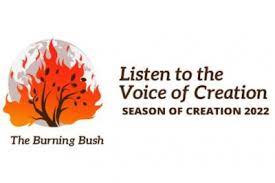Global Warming is a Reality. The Situation is not Hopeless.

-By Sam Allen, St. Luke’s parishioner and member of Public Policy and Environmental Action Team (PPEAT)
For the past three weeks, St. Luke’s has joined churches around the world celebrating the 2022 Season of Creation. We’ve celebrated God’s creation of our earth, its beauty and its diversity of life forms, and we’ve acknowledged that humanity has fallen short in caring for this inheritance of riches. Our modern lifestyles are causing climate change and pose a huge threat to life on our planet. We recognize that many of the impacts of our neglect fall most heavily on the most disadvantaged of our human population and on animal and plant species that have no voice in their future.
There is overwhelming evidence that the average global temperature has risen by at least 1.1°C since 1850 and that the rise is associated with human activity that keeps increasing the concentration of greenhouse gasses in the atmosphere. The impact on climate change is being felt across the world in extreme weather events, wildfires, famine, and extinctions of plant and animal species. The scale of the problems we face may seem impossibly large, but there are some signs for hope amid the news of ongoing climate disasters.
Across much of the developed world, the last decade has seen rapid deployment of renewable energy sources, accompanied by rapidly decreasing costs for solar panels, wind turbines, and high-performance batteries. The 2015 Paris Accord targets for limiting global warming to 2°C or less have been widely accepted as essential to preserve some degree of quality of human life. The very recent passage of the Inflation Reduction Act in the US is a huge step forward in incentivizing transition to a “net-zero” carbon future, and it gives the US much more credibility as a potential global leader in combating climate change. And widespread deployment of existing technologies for climate mitigation could potentially arrest global warming and meet the Paris Accord target. Doing so will require cooperation on a global scale, and that will be a challenge, but can we live with the alternative?
What can we do as individuals?
Take steps to lower your “carbon footprint.” Walk or cycle as an alternative to using your car. Arrange for a home energy audit to find the most effective ways to insulate your home, reduce energy consumption, and help increase the amount of green energy that you use. Limit air travel. Eat less meat. Educate yourself about climate change impacts and potential remedies. Talk to family members (especially children and grandchildren!) and friends about your concerns about climate change. Become politically active. Learn about your legislators’ positions on climate change and support those who are advocates for a clean energy future. Join a climate advocacy group.
